Woman forbidden from removing bat infestation from her home
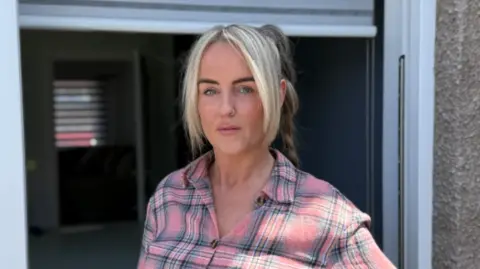 BBC
BBCA woman has been forced to sleep in her car after discovering hundreds of bats roosting in her home - and being told there is nothing she can do to remove them.
Anne-Marie Murchie says she is "living in fear every day" after discovering a colony of more than 500 of the protected animals in the walls and roof of her house in Aberdeen.
She first heard flapping noises in the walls and later discovered a bat hiding in her toilet roll holder. She has since found more in the living room and kitchen.
The NatureScot agency says it cannot remove bats from homes and has advised Ms Murchie that the animals will leave of their own accord at the end of the "maternity season" in August or September.
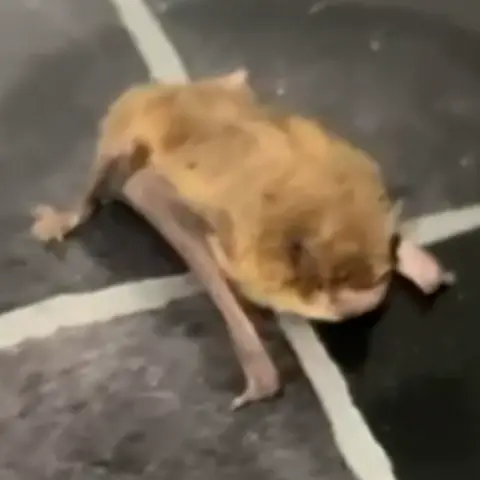 Anne-Marie Murchie
Anne-Marie MurchieThat has been of no comfort to Ms Murchie, who says her anxiety is "through the roof" from the sound of the bats' constant movement.
She told BBC Scotland News: "They're above the spotlights in the kitchen and they've popped them out a few times as well.
"I'm scared to come in the house. Sometimes I actually sleep outside in the car. I'm just petrified.
"The noise is horrendous, it's like running water. But I think it's all the wings going together, like flapping.
"It never stops. They get louder at about five or six at night and then when they come in at five in the morning. But they're constantly making noise. I wonder if they sleep."
The bats colonising Ms Murchie's home are soprano pipistrelles, which are among the most common and widespread of British bat species.
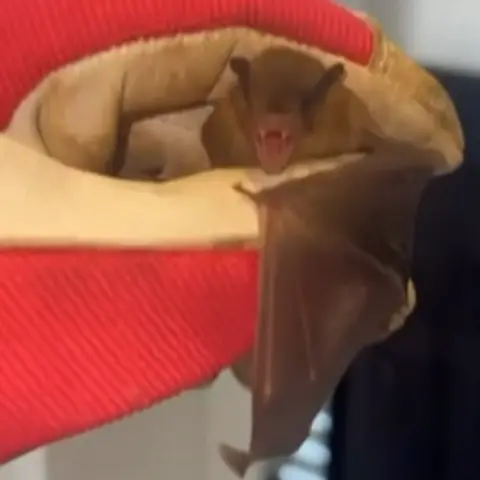 Anne-Marie Murchie
Anne-Marie MurchieThey are known to form colonies well in excess of 200 adult animals - plus their offspring.
NatureScot said these bats are usually seasonal visitors to houses and are present for four or five months of the year.
They form maternity colonies in May and June and leave in August and early September, once the young bats are independent.
NatureScot's bat workers can collect information and advise homeowners on problems they have with the animals.
But it says they "cannot carry out any works to your building or exclude/take away the bats".
The agency's Kevin Giles told BBC Scotland News: ''With regard to what you can do with them, actually nothing, because they are a protected species under European protection laws and Scottish and UK laws.
"So the bats themselves can't be touched, nor can the roosts.''
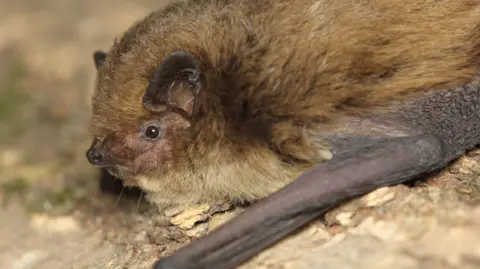 Getty Images
Getty ImagesMs Murchie first became concerned about a constant noise in her house a few months ago and believed it must be down to a wasps' nest.
But a pest control officer told her it was actually bats after looking at doorbell camera footage and seeing them outside.
"We found out they were protected so we went through the proper channels and called Nature Scotland," Ms Murchie said.
"They then came out with thermal cameras and that gave them an idea of how many bats there are and all the entry points in the house.
"It was about 500 bats at least and about 200 to 300 babies. But now we've found another site so they're coming back next week to see how many are there.
"It's absolutely awful. I actually moved out because I couldn't bear to live in the house. You can't come in or out at certain times because there's hundreds of them."
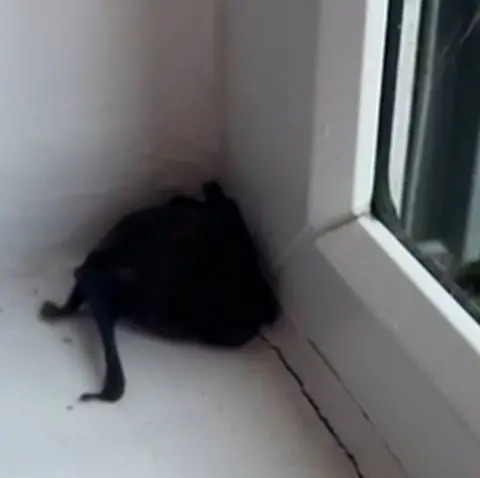 Anne-Marie Murchie
Anne-Marie MurchieMs Murchie returned to her house after a few weeks in the hope that the bats had left.
"I thought, they're definitely not in the house," she said "but then I got up one night and went to the loo.
"Half asleep, I grabbed the toilet roll holder and one came out and held on to my hand. I just flipped."
She added: "I phoned Nature Scotland and they came straight out. She (the bat expert) took her outside and put it back up beside the roost so she could go back up to her home."
Ms Murchie, who is a taxi driver, says she now spends as much time as possible working in her car to get away from the sights, sounds and smells in her house.
"The smell comes through the fan. It's like a musty, dirty smell.
"It's sad that you can't do anything about it in your own home.
"I feel like the rules should change a bit. Surely someone can come in that's licensed and take them away to somewhere humanely?"
Licence to seal
NatureScot has told Ms Murchie an officer will return to her house next week to update the situation.
She said: "Once they've checked that the bats are gone, I can get a special licence and it's confirmation that I can seal up all the potential entry points. So that when they come back next year they won't be able to get in."
NatureScot says people affected can call its Bats in Houses helpline on 01463 725 165 or email [email protected]
Anyone who finds a grounded bat in their property can also call either the Bat Conservation Trust Bat Helpline (0345 1300 228) or the SSPCA Animal Helpline (03000 999 999) for advice on how to best handle and remove the bat.
